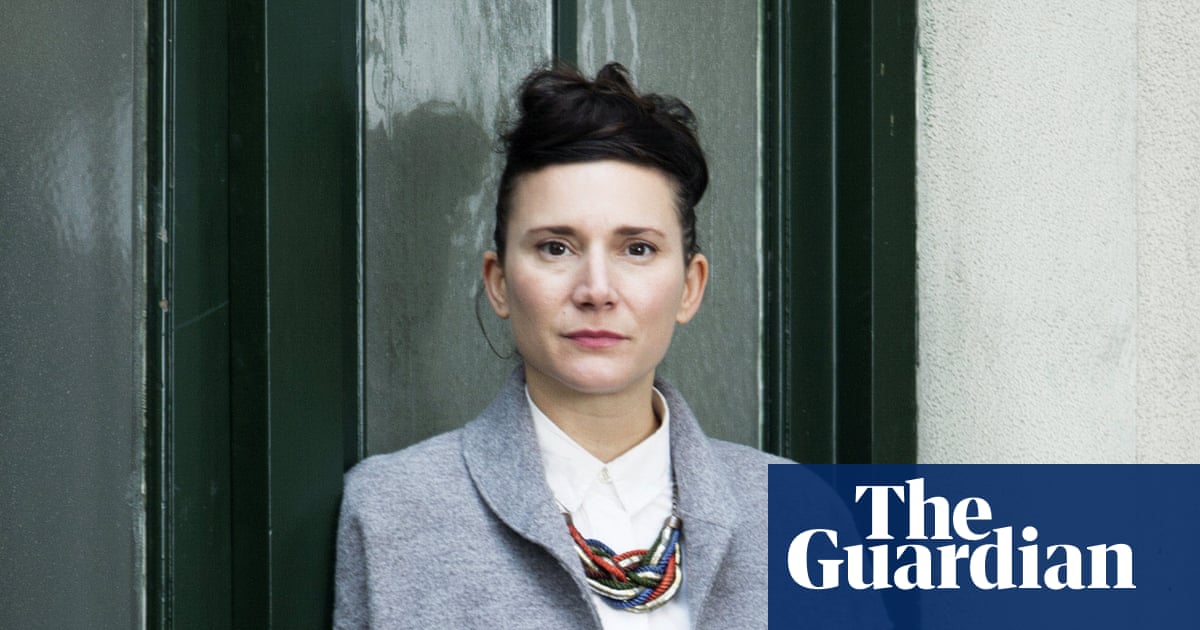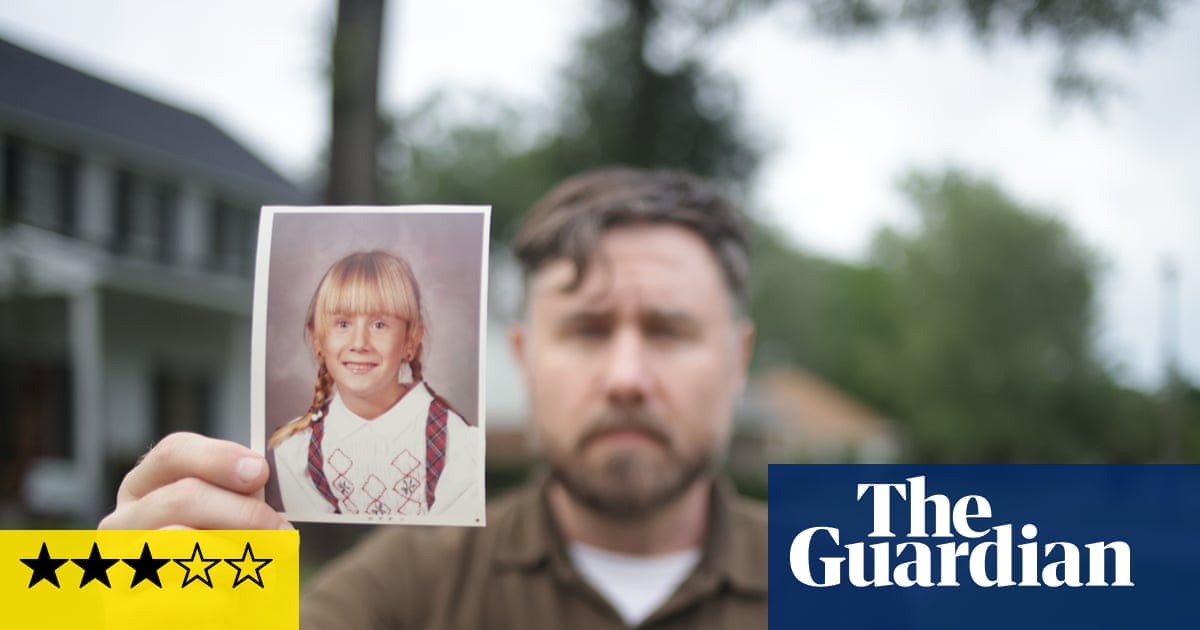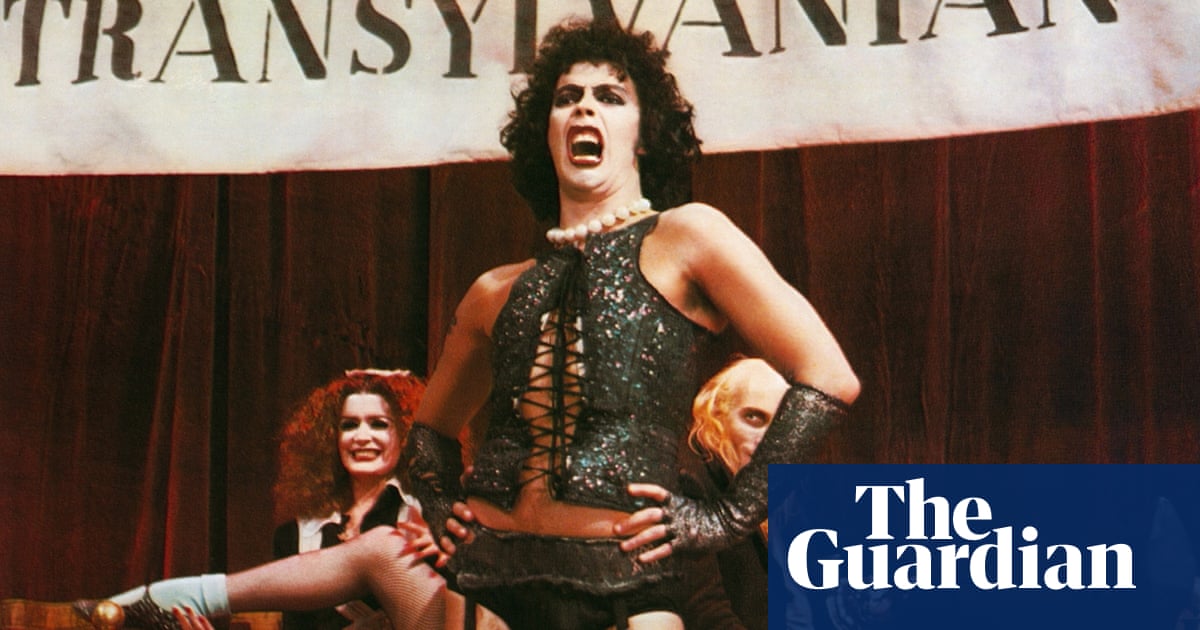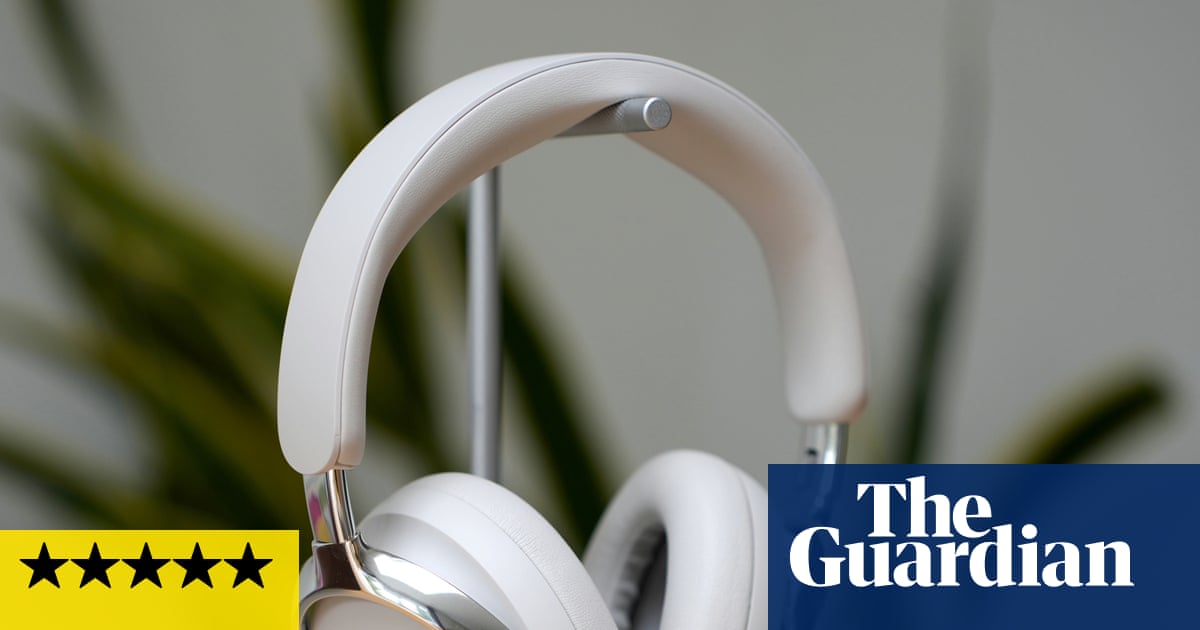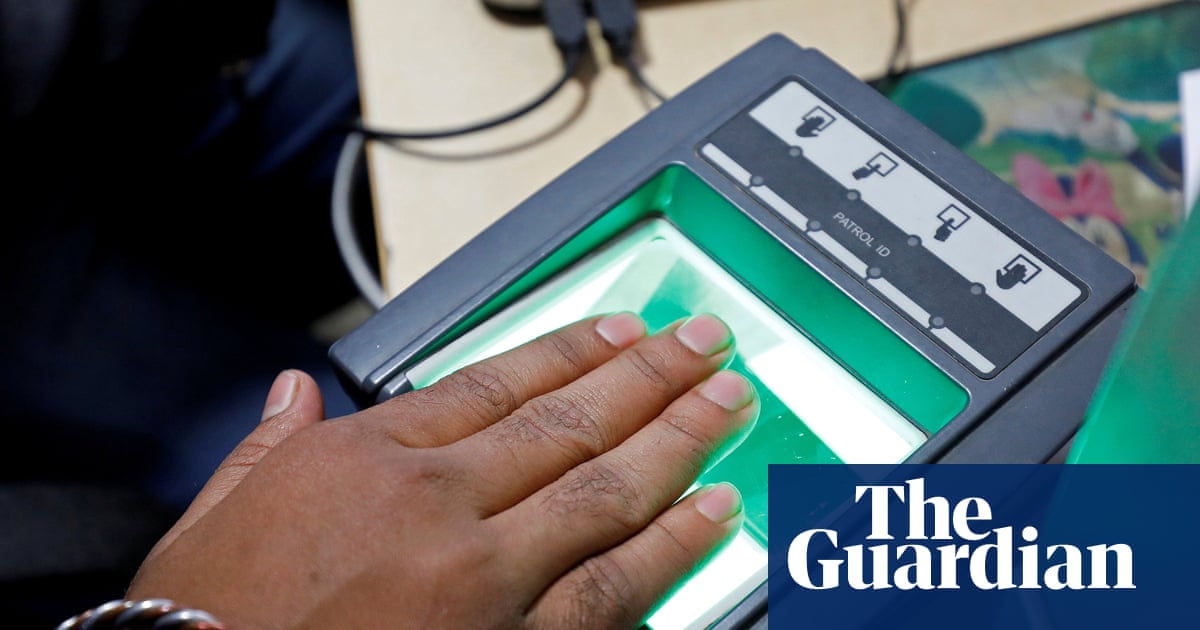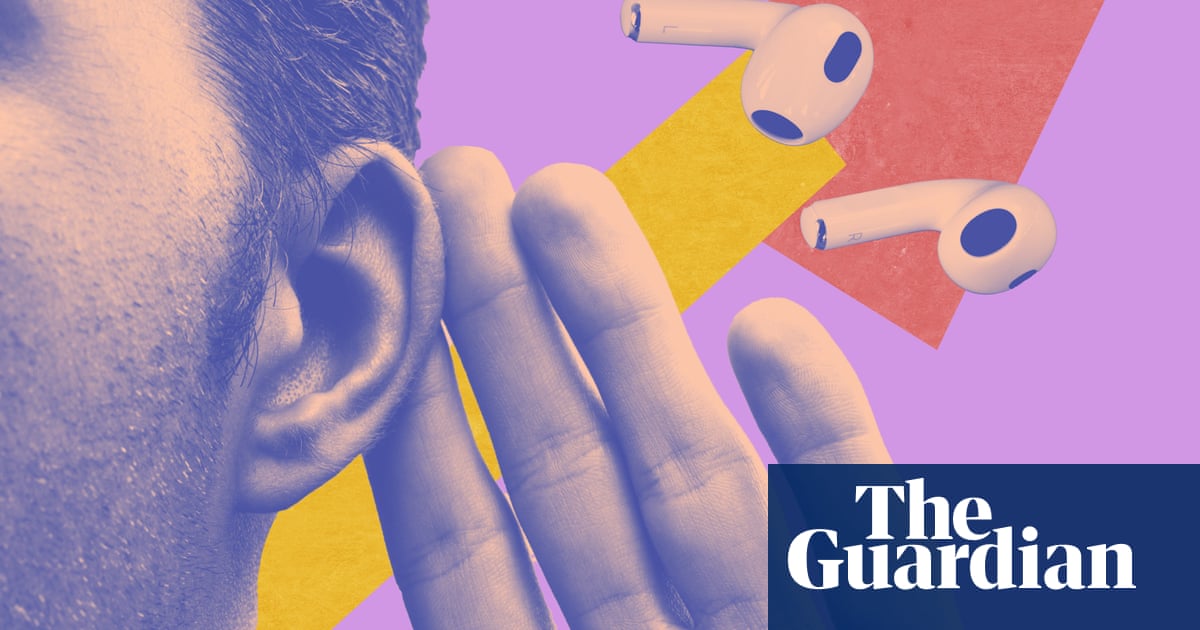Hearing loss can make life difficult and lead to social isolation. But with extremely loud devices in our pockets, and earbuds in near-constant use, we are at more risk than ever. How can you take care of your ears to avoid problems?
Looking after your ears is for life, not just old age
“People tend to think it’s a bit of fun if someone mishears,” says Kevin Munro, a professor of audiology and director of the Manchester Centre for Audiology and Deafness at the University of Manchester. From a young age it became apparent that Munro could not hear in his right ear, and in recent years he has experienced hearing loss in his left ear and started wearing a hearing aid – “so I have skin in the game”, he says. “Most of us don’t have hearing loss when we are young, but we all need to understand the importance of being able to communicate well and not have hearing difficulty. I think that could get rid of some of the stigma that is associated with hearing loss.”
That said, hearing does get worse as you get older
Hearing loss affects 42% of people over the age of 50, increasing to 71% of people over 70, according to the National Institute for Health and Care Excellence. “For the majority of people, it is a gradual change over their lifetime,” says Munro. “What happens is they’ll get to the stage where they think everyone is mumbling. So they’re blaming everyone else. And then the people they live with say, ‘Why have you got the television so loud? And why am I always having to repeat myself?’ That’s the time to sit up and take notice, because it is affecting all the people you love and spend time with.”
Be careful about exposure to noise
One billion young people are at risk from avoidable hearing loss, says Dr Siobhán Brennan, Munro’s colleague at the University of Manchester, a lead clinical scientist at Sheffield teaching hospitals and chair of the British Society of Audiology. This is because “devices are so much better than they used to be in terms of the quality of the sound”, she says. “Back in the 1980s, when we had cassette players, there was a limit to how much you would turn up the volume, because it would be distorted and horrible. These days you can go louder and louder, and the quality is great. So we are finding an increase worldwide in noise-induced hearing loss.
“When I started my career,” says Munro, “we knew one of the biggest risk factors for hearing loss was damage from noise – but that was usually occupational noise, when there were lots of factories in heavy industry. The concern nowadays is recreational noise and young people listening to music on headphones.”
Wear earplugs
“Loud noise is one of the most predominant causes of hearing loss in young people,” says Renee Almeida, the adult audiology clinical lead at Imperial Healthcare NHS Trust in London. All of us need to take care when exposed to sounds over 85 decibels (dB): for reference, a lawnmower is 90-95 dB; a concert or club around 110-120 dB. “The louder it gets, the less time you have to be exposed for to ensure damage.” So it’s best to avoid loud noise altogether. This might mean not standing next to the speakers at gigs. “Everyone has left a concert with some ringing in the ears for a few days,” says Almeida. This, she explains, is because “the stapedius muscle in the inner ear contracts in order to protect the cochlear – the part of the inner ear essential for hearing. The muscle ends up in spasm, which is why we end up with temporary tinnitus.”
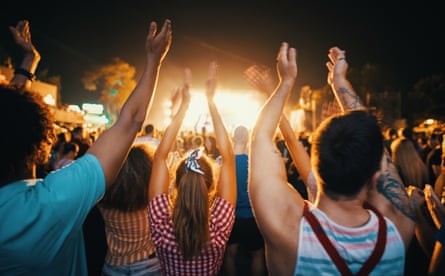
When Brennan – who previously trained as a sound engineer – goes to see live music, she always wears earplugs: “It is important that ear protection fits correctly. They come in different sizes, and you can get custom-made earplugs.” Munro recommends musician’s earplugs, which he used himself at a recent Bruce Springsteen gig. “The ones that have been designed for musicians have a filter in them and it just turns everything down, like lowering the volume on your television a little bit without distorting it.”
Don’t overdo it with your headphones
“The problem is that everybody has these really loud gadgets in their pockets and the world is a noisy place,” says Dr Jay Jindal, an audiologist and the owner of Planet Audiology, which has clinics in London, Surrey and Kent. “You could be sensible about how loud it is in your ear in a quiet environment, but as soon as you go into a noisy environment, you inevitably put the volume high without realising that it could be too high for your ears. I spend my life telling people the 50/50 rule – which means that you listen to 50% of the volume on your headphones for 50 minutes, and that seems to be a safe limit for most things.” The World Health Organization (WHO) advises 60% for 60 minutes.
Get your hearing tested

“One of the things that we really notice in audiology,” says Brennan, “is that people are unaware of the hearing loss they may have – and are missing things without realising. It takes people on average about 10 years between developing hearing difficulties and seeking help.”
There are lots of places to take a hearing test, Brennan says, such as the WHO app or the Royal National Institute for Deaf People (RNID) site. “There are three-minute tests that you can do. You don’t need a soundproof room; you can do it at home using your own device. They will say either everything’s fine, or there may be evidence here of a hearing loss.” That’s when you should see a doctor for a more thorough investigation.
See a doctor if you’re worried
“If you went to bed all right, and you wake up and one ear is completely deaf or there is severe hearing loss, you should go to your GP or to a hospital,” says Munro. “If there is inflammation in your inner ear, then getting steroids into your body as soon as you can is the best way of trying to reduce that.” Otherwise, there is a risk of permanent damage.
“Some people have ear infections more frequently than others,” says Brennan. “If you are getting them repeatedly, there could be an underlying reason. Go along to your GP, who may refer you to an ear, nose and throat specialist.”
Don’t use cotton buds
“Taking good care of the ears is not using cotton buds,” says Almeida. “Leave the ears to maintain their natural oil.” This can help avoid ear infections, “because dry skin can easily break, and even a fingernail can cause irritation and infection.” Almeida advocates drying the ears after a shower or swim, “when the ears are a bit wet, and nobody really likes that sensation – so get a piece of toilet paper or muslin on your little finger and give it a good wipe.” Only go as far in as the finger can go. It is normal for it to come out a bit yellow, she says. “Beyond that, leave it for nature.”
Accept that wax has a purpose
“Wax in itself is not a bad thing,” says Brennan. “It is a protective mechanism. It keeps the ears healthy, generally speaking, and it does migrate out by itself. It is one of those phenomena that has a bad reputation, because sometimes it gets stuck.”
“Having wax in the ear doesn’t mean that your ear is unhealthy or unhygienic,” adds Jindal. “Research suggests that wax has an enzyme which can kill bacteria and viruses going into the ear, and it moisturises the skin as well. So wax is actually a more helpful thing than not.”
Never remove wax at home
“Syringing is basically banned in the UK, because it can cause a lot of problems in the ears,” says Jindal. Almeida explains: “You can apply too much pressure or too little pressure, hoping that the water is going to pass the wax and flush it out, so it is hit and miss. That’s why it is dangerous, because you might have an infection and you don’t know about it until it is too late, or you can cause a perforation of the eardrum with the pressure. Microsuction is much more gentle and guided; you can stop at any time.”
Brennan notes that there is availability from the NHS for wax removal: “There are some audiology or ear, nose and throat departments that will offer it. And there are still some GP surgeries that offer it. However, it is certainly not as widespread as it used to be.” Outside the NHS, there is now not much regulation around who can carry out wax removal, so it is worth asking your GP for advice on where to get it done, the experts say.
If you need a hearing aid, get one
“Having a hearing aid, you are more likely to be in tune with what is going on in the world,” says Almeida. Hearing aids that are available on the NHS are “amazing”, she says – “I am very proud to say that.” The technology has improved a great deal, with even AI and “invisible” models on the market now. They are a lot less prone to problems like whistling, says Brennan.
Munro says: “Remember, you need good hearing to be able to communicate well, and hearing aids can address this. If you don’t hear well, you’re not able to stay socially connected to others. And if you’re not socially connected and you can’t have good-quality social interactions, this leads to isolation: you get anxious, you get withdrawn, you can be depressed, and that is not good for your health at all. For healthy ageing, you want to be able to remain socially connected.”
Be careful with ear drops
If your ear feels blocked, olive oil-based ear drops are an option. “For some people, they work well,” Brennan says. “But use them in moderation and according to what it says on the packet. Speaking to a GP is a good start because if your ear feels blocked, it may not be wax; it could be an infection, which you’re going to want to approach in a different way.”
There are times when oil does more harm than good, says Jindal. “Oil can close the pores of the skin, so the skin stops breathing, and if you already have an existing problem with the skin, then it doesn’t go in your favour.”
Consider earplugs for swimming
“Swimming in a pool is OK for most people,” says Jindal. “If they have ear-related issues, they will benefit from wearing earplugs. There are some over-the-counter earplugs, which are quite cheap. Or they can go to their nearest audiologist and get customised swim plugs made.”

For people prone to ear problems, swimming in open water can be more problematic than doing pool lengths, because “the water is more contaminated rather than regulated”.
Treat tinnitus
“Tinnitus is ringing or buzzing,” says Almeida. “It is described as a perception of sound, when no external sound is around. Very rarely, it can be caused by changes in blood flow or muscle contractions, but it is ultimately generated by the brain’s auditory system. Hearing loss and tinnitus go hand in hand because by lacking hearing, the brain then notices the tinnitus.” It can be related to problems with the jaw, teeth or tense muscles around the neck, Almeida adds. “The treatment options depend on what we find. If there is a hearing loss, hearing aids are always going to be the first port of call.” A visit to the dentist might also be an idea.
Dehydration may be a factor: “People say, ‘When I wake up, the tinnitus is very loud, and the moment I have a glass of water, it’s fine.’ The ears are filled with liquid, and the whole body dehydrates at nighttime.”
Brennan adds that there’s some evidence to suggest cognitive behavioural therapy is effective for reducing the impact of tinnitus.
Remember that hearing affects your balance
“Your ear controls your hearing and your balance,” says Munro. “So if something goes wrong with your ear, it might also affect your balance. As we get older, the balance organ in our ear will not work as well as it used to. Your inner ear, where your cochlear is for your hearing and your semicircular canals for your balance, relies on a really good blood supply – but it is where the blood vessels are the smallest in the body, which is why people might end up with a vestibular problem.”
During flights, have a drink or blow your nose
If your ears feel blocked or painful when on an aeroplane, “swallowing something helps, because that creates positive pressure inside the ear”, says Jindal. “Sipping a glass of water or juice, or sucking a sweet, may be helpful. There is a special balloon you can blow up with your nose rather than your mouth, which seems to help. And blowing the nose in general is a good thing.”

 3 months ago
151
3 months ago
151









